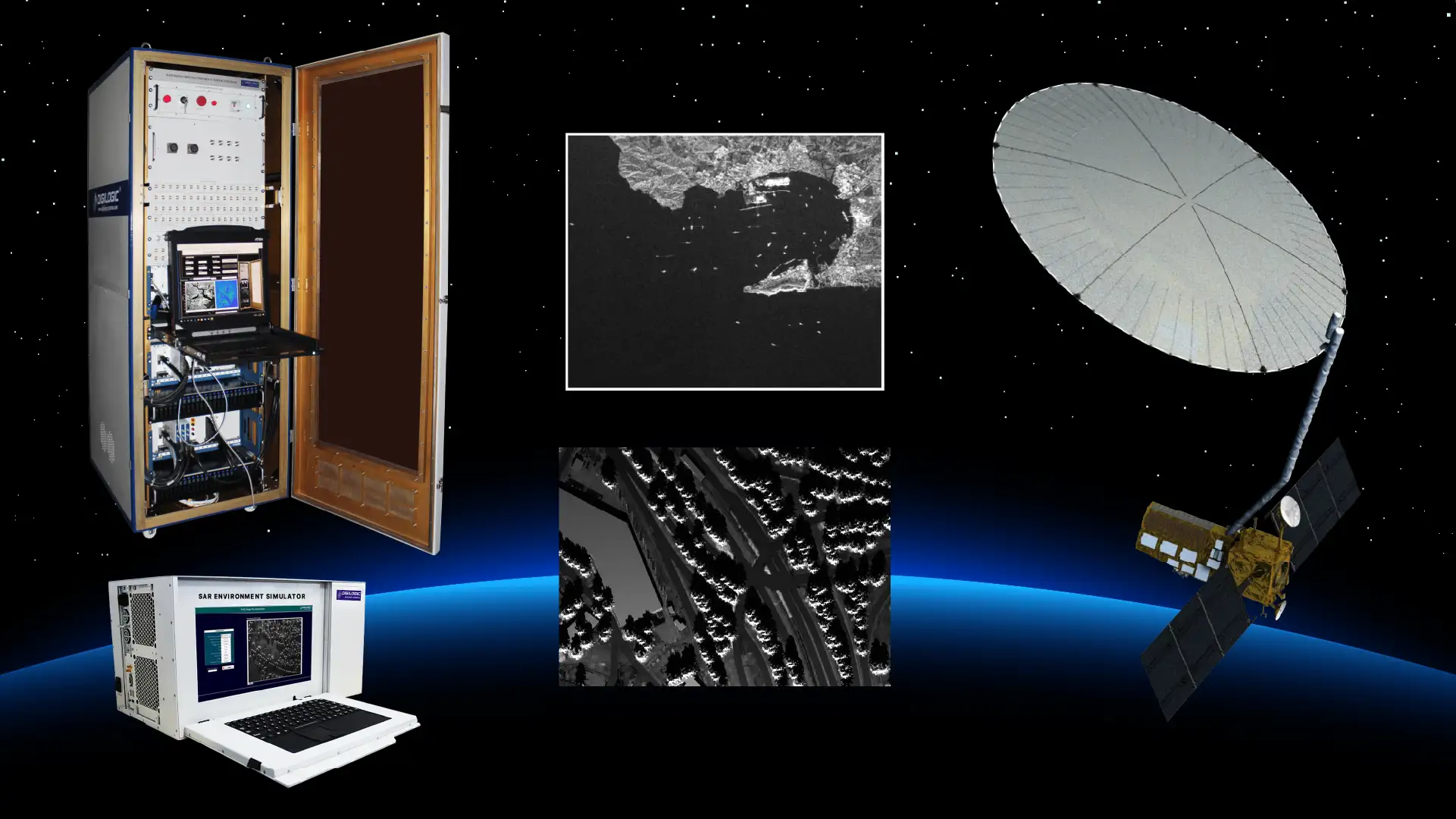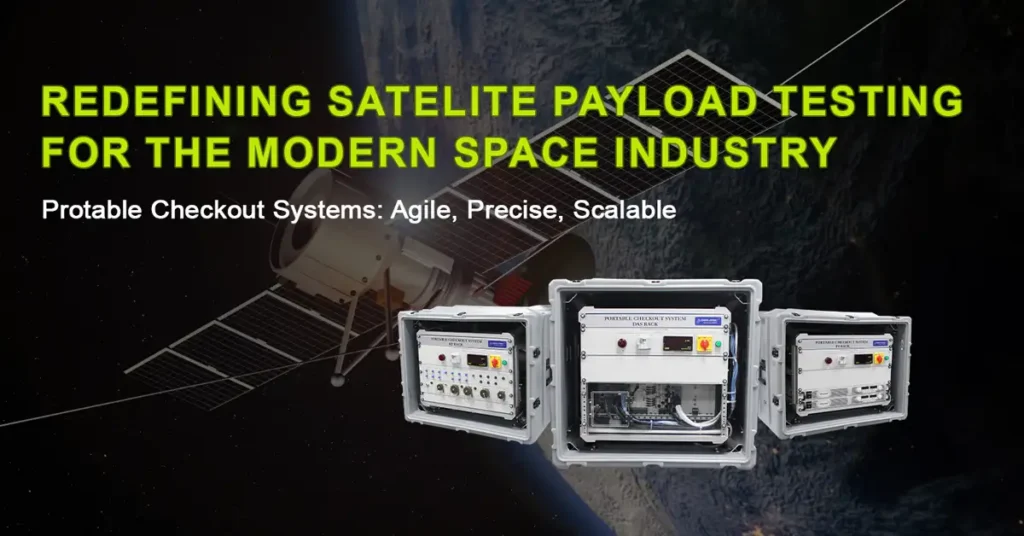As the space industry rapidly evolves, so too must the methods and tools used to ensure mission readiness and reliability. The proliferation of satellite constellations, the rise of commercial missions and the adoption of new payload technologies all demand a more agile, precise and scalable approach to satellite testing. At the heart of this transformation is the adoption of Portable Checkout Systems (PCS), a shift that is redefining how teams validate satellite systems and their payloads.
Overcoming Traditional Testing Challenges
Historically, satellites and their payload verification has followed a rigid routine: book scarce facility resources, transport payloads to test labs, and execute complex, often manual test sequences over days or weeks. This legacy process, while thorough, frequently creates project bottlenecks, delaying schedules, increasing manpower requirements driving up costs, and making it difficult to adapt to changing requirements or last-minute design changes. The increasing complexity of modern satellite subsystems from high-bandwidth communications and advanced propulsion to data-intensive synthetic aperture radar (SAR) and intelligent payloads demands not only more test coverage, but also greater flexibility and efficiency. Manual processes are challenged by volume, intricacy and data fragmentation making operational readiness and post-flight analysis difficult.
Portable Checkout Systems: A Strategic Shift
Portable Checkout Systems fundamentally change how and where validation takes place. Rather than requiring satellites to adapt to the facility, PCS bring comprehensive testing directly to the development environment, be it a cleanroom, integration hall, environmental test chamber, or launch complex. PCS platforms are engineered for portability, adaptability and broad compatibility.
They support rigorous validation of every major subsystem, including:
- Command and Control Unit
- Communications
- Power Supply Unit
- Antenna Control Unit
- Thermal and Attitude Control
- Connections and Cable Harness Evaluation
By facilitating test sequences that span analog, digital, RF, power, avionics, and cross-domain interfaces, PCS ensure comprehensive and mission-representative verification at every phase.
Enabling Technologies: Software and Integration with COTS Hardware
Advanced software platforms are the core of PCS functionality. Industry-standard environments such as LabVIEW and TestStand streamline the development and management of test routines through intuitive graphical interfaces, automated reporting, and extensive device compatibility. Integration with PXI based modular architecture offers scalability and high performance for even the most demanding test scenarios.
Key software features include:
- Real-time monitoring of hundreds of parameters
- Automated anomaly detection and reporting
- Comprehensive data logging and traceability
- Flexible support for changing test requirements and configurations
Such tools not only reduce turn-around-time (TAT) for new programs, but also facilitate smooth transitions between component, subsystem, and full-system validation.
Simulation and Advanced Testing: The SARES Example

As payloads become more sophisticated, simulation emerges as a strategic necessity. Digilogic Systems Synthetic Aperture Radar Environment Simulator (SARES) exemplifies this trend, delivering high-fidelity, real-time simulations SAR payload testing. By modelling electromagnetic effects and realistic operational environments, SARES allows teams to validate payload algorithms and system performance long before flight-trials mitigating risk and compressing development cycles and saving money since flight-trials are costly and pilots are at a risk due to dangerous environment conditions.
Demonstrated Impact: Reliability, Speed, and Cost Effectiveness
Empirical industry results underscore the transformative impact of PCS and automated solutions:
- Enhanced Mission Success: Robust ground validation using automated systems has driven significant improvements in satellite reliability. Recent analysis shows small satellite success rates reaching 87%, with a marked increase in missions exceeding their planned lifespans.
- Efficiency Gains: Testing timelines can be reduced by a factor of 10, empowering teams to iterate more quickly and address issues early before they escalate into costly delays.
- Cost Reduction: Up-front investment in PCS is rapidly offset by lower labor requirements, reduced facility bookings, and fewer late-stage failures.
- Scalability: Organizations can validate growing fleets or constellations using common platforms, preserving capital and knowledge as programs expand.
Industry adoption of Portable Checkout Systems (PCS) and automated test solutions is rapidly increasing among leading satellite manufacturers and government agencies. Organizations report substantial benefits, including the ability to prepare and validate satellites quickly at diverse locations ranging from integration facilities to remote and environmental sites. Enhanced data management capabilities ensure regulatory compliance and bolster quality assurance processes, while the flexible integration offered by PCS allows seamless compatibility with both new and legacy test equipment. Furthermore, these systems scale effortlessly to support the simultaneous testing of multiple satellites, future-proofing test programs as constellations grow. Customer feedback consistently notes significant improvements in testing accuracy, faster schedule execution, and superior cost control, underscoring the transformative impact of PCS in satellite payload validation.
Looking Ahead: The Foundation for Future Space Missions
The future of space missions will be driven by even greater complexity, aggressive timelines, and rising standards for quality and reliability. Such Test Systems can be backed by powerful automation and advanced simulation, helping organizations to meet these demands with confidence. Many customers have already integrated of artificial intelligence and machine learning with PCS units. These advances help bring predictive test analytics and further optimization of test scenarios, driving even higher mission assurance and faster delivery schedules.
Conclusion
As the space industry redefines what is possible, success increasingly depends on flexible, automated and data-driven validation. Portable Checkout Systems are not just a convenience, but a strategic advantage, ensuring that every mission is built on a foundation of reliability, efficiency, and adaptability.
At Digilogic Systems, we are proud to empower our customers with solutions that anticipate the needs of next-generation satellite programs. Together, we are building a future where mission assurance and innovation go hand in hand, every step of the way to orbit and beyond.

